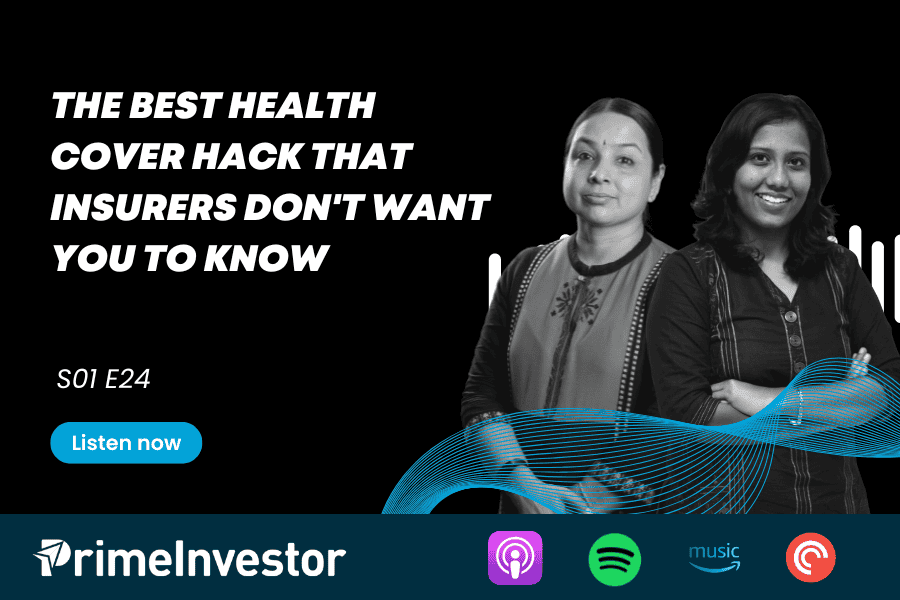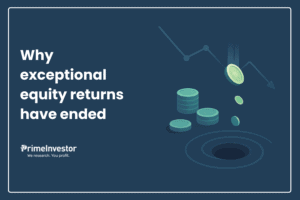Listen to this episode on your favourite app
What is this episode about?
Health insurance should provide peace of mind, assuring us that our finances won’t crumble in the face of a medical emergency. Yet, many policyholders face a frustrating reality: claim rejections and endless hurdles that can make even the most patient person want to throw in the towel.
Through our interactions with readers and our own experiences, we’ve witnessed countless ways in which insurance companies can deny claims or create such complex processes that many give up before receiving their due settlement. This leads to an understandable question: Is health insurance worth it at all?
While abandoning health insurance altogether isn’t the answer, we’ve worked out a good solution to this question. In this episode of the Prime Podcast, Aarati Krishnan shares insights with Bhavana Acharya about an innovative approach that could help:
– Reduce your insurance premiums
– Reduce the guesswork in claims settlement
– And in the bargain, give you greater control over where and how you access healthcare
Aarati Krishnan also talks about the pros and cons of this approach, how to make it work and who it could work for.
Tune in to discover how you can better protect yourself against claim rejections while optimising your health insurance coverage. This could be the game-changer you’ve been looking for in navigating the complex world of health insurance.

Key segments in the podcast
- Intro (0:00 – 1:07)
- Why Health insurance is important (1:07 – 03:21)
- The painful experiences of claims (3:21- 09:37)
- Way out of the health claims nightmare – a top hack (9:37 – 12:11)
- Benefit of a health fund cum super top-up strategy (12:11 – 15:41)
- Who can follow this strategy (15:41 – 20:00)
Don’t have a podcast app? Listen to the full episode here :
Follow the podcast wherever you listen to podcasts :






3 thoughts on “Podcast: Is There a Hack to Rejection-Proof Your Health Insurance?”
IMHO – This approach more or less misses the point that risk, and re-appearance of risk – is a probability game. It’s something that none of us can foresee. If we know the possiblity of us going to hospital is frequent or rare – then we can do all this jugaad.
I know of situation with 4 different people (non senior citizens) in two different families – who went thru (unfortunately) hospitalization over 11 times. None of these could have been forecast earlier (because these were not caused due to lifestyle diseases i.e. diabetes, blood pressure …) If they had followed this approach – one of the families would have had to shell out 20 lakhs (from their funds and get about 8 lakhs from the super top up of 5 – 50 lakhs they had). The other family would have got about 3 lakhs from the super top up and paid out 12 lakhs from their health fund.
So in short health fund cannot handle the game of probability well.
Further if these two families did not have a base cover of 5 lakhs and decided after these events to go get a cover – you have already answered it well – They will run the risk of getting future claims repudiated or quite likely they will never be able to get the base cover at all.
So the approach covers situations which may work for some peope some of the times, but can fail badlly for people when they need it the most.
Hi.
Just wanted to share my thoughts on this.
I had seen the other article and then listened to this podcast episode partially. Honestly this is very concerning. IMHO it should never be advised to even remotely replace health insurance with an investment corpus. That investment corpus or emergency fund should always be there and that too with a base policy (optionally with an additional super top-up). Such advice might give people an idea it’s a good idea that it’s okay to skip health insurance or even base polices especially since you yourself say that even after all this even the super top-up might reject the further claims.
I think in certain financial cases there should be a line drawn and health insurance is one of those where one should definitely get a base policy and an optional super top-up, not the other way round. And yeah, again, emergency is not an option with or with any or both kind of policies, it should always be there.
We understand your point, and we agree that health cover is necessary.
But a few clarifications – one, an emergency fund is separate from what we have suggested here; this health cover fund is intended only to meet health expenses and not for anything else. Next, in our view, a super top-up is important even if you have a base policy because it takes care of expenses that isn’t covered by base policies. Taking a very large base policy will require very high premium outgo; a base + super top up both has adequate cover and more economical premiums.
In any case, yes, this option is not for everyone, and certainly not for younger people who will not be able to build up the required corpus.. We have given this solution for those who are wary about health insurance claims being rejected and don’t want to deal with that uncertainty and ever-increasing premiums. So it’s important that the drawbacks and suitability are understood first, as explained in our article, before going for this. – thanks, Bhavana
Comments are closed.